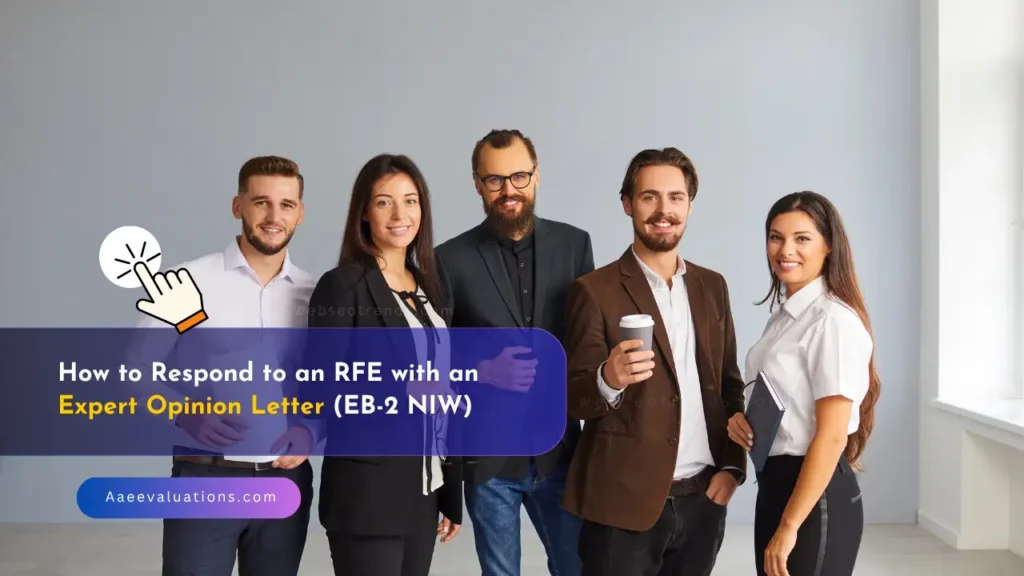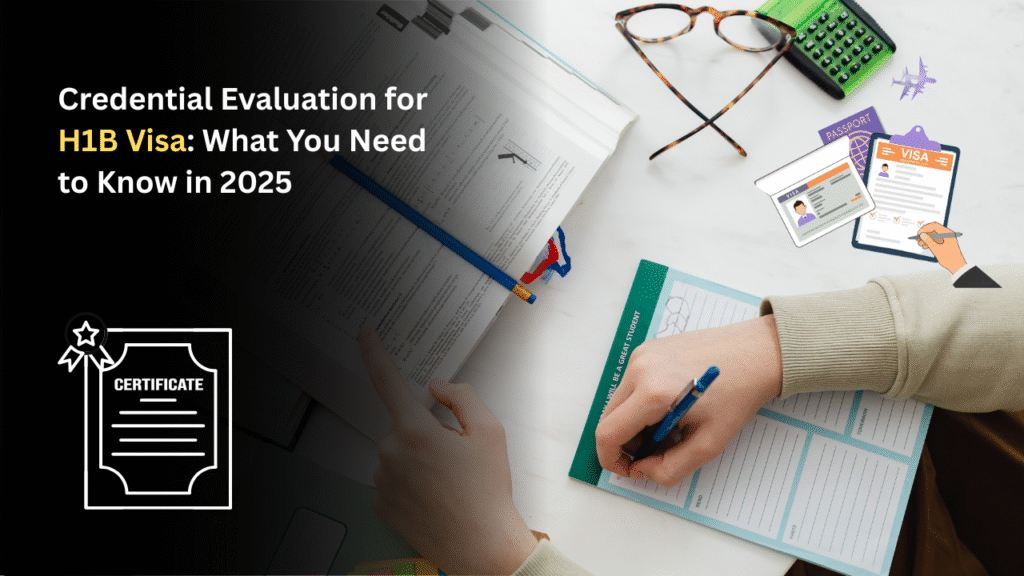Expert Opinion Letter (EB-2 NIW)
Receiving a NIW RFE from USCIS can feel like a setback in your green card journey. However, this Request for Evidence doesn’t mean rejection—it simply indicates your EB-2 National Interest Waiver application needs additional supporting documentation.
Importantly, how you respond to this request can significantly impact your approval chances. Expert opinion letters for eb2 niw applications have proven to be particularly effective when addressing an rfe. In fact, including 5-7 letters from distinguished independent experts can transform your rfe response from adequate to compelling. These letters specifically address the three prongs of Matter of Dhanasar: substantial merit and national importance, being well-positioned to advance your endeavor, and demonstrating why waiving the job offer requirement benefits the United States.
Fortunately, with a well-structured rfe response letter and the right supporting evidence, you can turn this challenge into an opportunity to strengthen your case. This comprehensive guide will walk you through creating an effective rfe response, from understanding common triggers for eb2 niw rfes to crafting a persuasive rfe response cover letter that showcases your exceptional abilities and contributions of national interest.
Understanding the EB2 NIW RFE
A Request for Evidence (RFE) from USCIS serves as a middle ground between approval and denial of your EB-2 NIW petition. Understanding what prompts these requests and how to address them effectively can make a crucial difference in your immigration journey.
What triggers an RFE in EB2 NIW cases
An RFE is issued when an evaluating USCIS officer needs additional documentation to make a decision on your case. This notice indicates that while your petition wasn’t immediately approved, it hasn’t been rejected either. Instead, USCIS is giving you an opportunity to strengthen your case with supplementary evidence.
RFEs are typically triggered by gaps, ambiguities, or inconsistencies in your application. Furthermore, changes in USCIS policies or interpretations of immigration law may prompt officers to request clarification. Nevertheless, receiving an RFE doesn’t mean your application is doomed—it simply indicates that certain aspects of your petition require additional support.
How USCIS evaluates your petition
When reviewing your EB-2 NIW petition, USCIS follows a specific evaluation process. Initially, officers determine whether you qualify for the underlying EB-2 classification as either a professional with an advanced degree or an individual with exceptional ability. If you don’t meet these basic qualifications, your petition may be denied without even considering the national interest waiver request.
For petitioners seeking qualification through advanced degrees, USCIS examines whether your occupation qualifies as a profession and verifies that any claimed post-bachelor’s experience relates to your field. For those claiming exceptional ability, USCIS evaluates whether that exceptional ability directly relates to your proposed endeavor.
Once basic eligibility is established, USCIS applies the three-prong Dhanasar framework to evaluate your national interest waiver request:
- Whether your proposed endeavor has substantial merit and national importance
- Whether you’re well-positioned to advance this endeavor
- Whether, on balance, it benefits the United States to waive the job offer requirement
Each petition is evaluated on a case-by-case basis, with officers reviewing the totality of evidence provided.
Common reasons for RFE issuance
Several common deficiencies frequently trigger RFEs in EB-2 NIW cases:
- Lack of acceptable recommendation letters – Your petition should include strong, detailed letters from distinguished individuals familiar with your work, especially from independent experts not directly associated with your endeavor
- Poorly-argued petition letter that fails to effectively connect your qualifications to immigration law requirements
- Insufficient evidence of your ability to advance your work, such as specialized degrees, progress reports, or an updated resume
- Inadequate proof of past achievements that would justify waiving the PERM and job offer requirements
- Failure to demonstrate national importance of your specific endeavor rather than just the general importance of your industry
- Inconsistent or incomplete information across your application materials
- Lack of evidence for exceptional ability if you’re not relying on an advanced degree for eligibility
RFEs may also be issued when petitioners focus excessively on past accomplishments without adequately detailing future plans in the United States, or when they fail to provide solid financial projections for proposed business ventures.
Consequently, understanding these common triggers can help you prepare a more thorough initial petition or craft a more effective response if you do receive an RFE.
What Is an Expert Opinion Letter and Why It Matters
Expert opinion letters represent a critical component when responding to a niw rfe. Unlike standard documentation, these specialized letters provide a powerful third-party validation of your exceptional abilities and the national importance of your work.
Definition and purpose of expert letters
An Expert Opinion Letter for an EB-2 NIW petition is a detailed assessment written by a distinguished authority in your field who evaluates your credentials and the merits of your endeavor. Essentially, it serves as an official review of your professional experience and accomplishments, functioning as supplemental documentary evidence to strengthen your petition.
The primary purpose of these letters is to validate your qualifications and claims. Since USCIS adjudicating officers may not be experts in your specific field, they rely on objective evidence to evaluate your petition. Expert letters help bridge this knowledge gap by providing credible, independent assessment of your work’s significance.
These letters accomplish several crucial functions:
- Validating your claims of exceptional ability
- Confirming your proposed endeavor has substantial merit and national importance
- Verifying you’re well-positioned to advance your endeavor
- Demonstrating why waiving the job offer requirement benefits the United States
Difference between recommendation and expert letters
A common misconception is treating recommendation letters and expert opinion letters as identical, yet they serve distinctly different purposes in your EB-2 NIW petition.
Recommendation letters typically come from your “inner circle” – colleagues, co-workers, or others who have worked directly with you and can provide firsthand testimony about your abilities and accomplishments. These individuals know you personally and can speak to your character and professional capabilities based on direct experience.
In contrast, expert opinion letters come from your “outer circle” – distinguished independent authorities who may have no personal connection to you. These experts evaluate your credentials objectively by reviewing documentary evidence rather than personal knowledge of your work. This independence lends considerable weight to their assessment, as USCIS often views letters from personally connected individuals as potentially biased.
Additionally, the most effective expert letters come from recognized authorities who can substantiate your exceptional abilities through objective evidence rather than merely offering personal endorsements.
How expert letters support the Dhanasar criteria
Expert opinion letters are particularly valuable because they directly address the three-prong Dhanasar test that USCIS uses to evaluate EB-2 NIW petitions.
For the first prong (demonstrating substantial merit and national importance), expert letters can provide compelling evidence through independently verifiable analytics, statistics, and factual data that establish your work’s significance. The expert can articulate the importance of your contributions in terms that are clear even to those outside your specialized field.
Regarding the second prong (being well-positioned to advance the proposed endeavor), experts can assess your qualifications, past achievements, and current position to confirm you have the necessary skills and resources to succeed.
For the third prong (balancing factors that make waiving the job requirement beneficial), expert letters can present persuasive arguments about why your contributions are so valuable that requiring labor certification would be against national interests.
Accordingly, including 5-7 letters from distinguished independent experts substantially strengthens your case when responding to an rfe for your eb2 niw petition.
How to Use Expert Opinion Letters in Your RFE Response
Strategic implementation of expert opinion letters can transform your EB-2 NIW RFE response from merely adequate to genuinely compelling. The key lies not just in obtaining these letters but in strategically utilizing them to address specific USCIS concerns.
Aligning expert letters with USCIS concerns
The foundation of an effective RFE response begins with thoroughly analyzing the actual RFE document. USCIS typically identifies specific deficiencies in your initial application that require addressing. These concerns generally fall into three categories:
- Exceptional ability verification: USCIS may question your qualifications and achievements
- National interest demonstration: Officers often challenge whether your work truly impacts the United States nationally
- Proposed endeavor clarification: Your future plans in the US may require additional validation
Prior to commissioning expert opinion letters, identify exactly which aspects of your petition USCIS has flagged as insufficient. This targeted approach ensures your experts directly address the specific concerns rather than providing generic endorsements.
Moreover, ensure your expert letters are clear, concise, and respond directly to every concern listed in the RFE. Using the exact language from the RFE can help make it evident that the expert is directly addressing the reviewer’s concerns.
Addressing exceptional ability and national interest
Expert letters should substantiate both your exceptional ability and the national importance of your work through objective evidence. For establishing exceptional ability, experts should highlight your specialized knowledge, accomplishments, and how your qualifications exceed industry standards.
When addressing national interest concerns, experts can:
- Reflect on broader industry implications of your work
- Quantify benefits where possible (GDP increase, job creation, etc.)
- Contextualize your contributions in relation to existing technologies or practices
- Emphasize future improvements possible through your work
Undoubtedly, letters from high-ranking or reputed professionals carry more weight than those from lesser-known individuals. Indeed, USCIS often scrutinizes letters from undistinguished colleagues more rigorously than those submitted by recognized authorities or organizations.
Using expert letters to explain your proposed endeavor
Expert letters serve as powerful tools to validate your future plans in the United States. These letters should clearly outline how your proposed endeavor has substantial merit and national importance according to the Dhanasar criteria.
During this process, experts can provide valuable context by analyzing industry trends, explaining how your work addresses critical needs, and projecting potential impacts of your future contributions. This third-party validation helps USCIS understand both the technical merits and broader significance of your proposed work.
Firstly, ensure the experts thoroughly understand your proposed endeavor before writing their assessment. Secondly, provide them with sufficient documentation about your qualifications and achievements. Following these steps allows them to make specific connections between your background and future plans, demonstrating you’re well-positioned to advance your proposed endeavor.
Remember that USCIS values quality over quantity. Although 5-7 strong expert letters generally strengthen an RFE response, a few well-crafted letters from truly distinguished independent experts will prove more effective than numerous generic endorsements.
Step-by-Step Guide to Responding to an RFE
Responding effectively to a niw rfe requires a methodical approach and careful attention to detail. The standard response time for most USCIS requests is 84 calendar days, giving you sufficient time to prepare a thorough response. Here’s a comprehensive breakdown of each step:
Step 1: Read and understand the RFE
Upon receiving your eb2 niw rfe, resist the urge to panic. Remember that USCIS could have denied your application outright but instead chose to give you an opportunity to strengthen your case. Carefully review the entire document—possibly multiple times—to grasp exactly what additional evidence the officer is requesting. Make a checklist of all requested items and identify which Dhanasar criteria need additional support.
Step 2: Collect supporting documents and expert letters
Begin gathering required documents immediately after understanding the RFE. This prompt action gives you ample time to collect compelling evidence. For eb2 niw petitions, expert opinion letters are particularly valuable. Having a few strong, detailed letters is more effective than numerous vague ones. Ensure all documents are in English or properly translated.
Step 3: Draft a clear and organized response
Structure your response logically, making it easy for busy USCIS officers to review. Address each point raised in the RFE individually with clear explanations. Remember that USCIS generally issues only one RFE, so your response must be comprehensive. If submitting substantial documentation, consider including a table of contents and using tabs or labels to separate different sections.
Step 4: Include a persuasive RFE response cover letter
Your cover letter serves as a roadmap for your entire response. It should detail:
- Your understanding of why you received the RFE
- The documents you’re submitting
- How these materials address each concern raised
- Why you couldn’t obtain certain documents (if applicable)
- Alternative evidence you’re providing (if necessary)
Step 5: Submit before the deadline
Missing the RFE deadline will likely result in denial. Submit your complete response package well before the due date. Place the original RFE on top, followed by your cover letter and supporting documents. Make copies of everything for your records before submission. Use trackable mail services to confirm delivery.
Tips to Strengthen Your RFE Response
A superior niw rfe response focuses on quality over quantity. When USCIS officers review your expert opinion letters, they’re seeking substance, not just supportive statements. The following strategies will significantly improve your chances of approval.
Avoiding vague or generic letters
Generic letters immediately raise red flags with USCIS officers. Effective expert opinion letters must include specific examples of your contributions and their impact, rather than vague praise. Avoid boilerplate language that could apply to anyone. Each letter should:
- Use official letterhead
- Include the writer’s credentials and contact information
- Explain how they know you or your work
- Provide concrete examples of your contributions
- Clearly state the national importance of your work
The difference between approval and denial often lies in these details. USCIS can quickly identify form letters, which actually harm rather than help your case.
Choosing credible and independent experts
The credibility of your experts dramatically influences how USCIS evaluates their opinions. Letters from your “outer circle”—independent experts with no personal connection to you—carry substantially more weight than those from colleagues or supervisors. This independence lends objectivity that USCIS values highly.
Primarily, seek experts who are recognized authorities in your field. Reference letters from undistinguished colleagues face greater scrutiny than those from high-ranking officials or recognized organizations. Government agencies or officials providing relevant information about your positioning to advance your endeavor are particularly valuable.
Using data and evidence to support claims
Strong expert letters incorporate objective evidence rather than mere opinions. The most persuasive letters include independently verifiable analytics, statistics, factual data, and quantitative information.
When experts cite specific metrics about your work’s impact, they transform subjective praise into objective assessment. Furthermore, experts should clearly connect these data points to the three Dhanasar criteria, showing how your work meets each prong.
How many expert letters to include
Most experts recommend submitting 5-7 letters from distinguished independent experts. Yet a few strong, detailed letters outweigh numerous vague ones. One source notes success with only three recommendation letters, clearly demonstrating that quality trumps quantity.
Certainly, different types of letters serve different purposes. Aim for a balanced mix from both your “inner circle” (colleagues with firsthand knowledge of your work) and “outer circle” (independent experts who can objectively assess your contributions).
Conclusion
Responding effectively to an EB-2 NIW RFE represents a pivotal opportunity rather than a setback in your immigration journey. Expert opinion letters certainly stand as powerful tools that can transform your case from questionable to compelling. These letters essentially serve as third-party validation of your exceptional abilities and the national importance of your work—exactly what USCIS officers need to approve your petition.
Your response strategy should focus on quality rather than quantity. Five to seven well-crafted letters from truly distinguished independent experts will significantly outweigh numerous generic endorsements. Each letter must directly address specific concerns raised in your RFE while providing concrete evidence supporting the three Dhanasar criteria.
Remember that timing matters just as much as content. USCIS typically allows 84 days for your response—use this time wisely to gather compelling evidence and craft a thorough, organized submission. Missing the deadline will likely result in denial, therefore submit your package well before the due date.
Above all, view your RFE as an opportunity to strengthen your case. USCIS could have denied your petition outright but instead gave you a chance to provide additional evidence. Expert opinion letters, when properly executed, can bridge knowledge gaps between specialized fields and USCIS officers who may lack technical expertise in your area.
The path from RFE to approval requires meticulous attention to detail and strategic planning. Armed with strong expert opinion letters that specifically address USCIS concerns, you can confidently navigate this challenging phase of your immigration journey and increase your chances of achieving that coveted National Interest Waiver.
FAQs
Q1. What is an RFE in the context of an EB-2 NIW petition?
An RFE (Request for Evidence) is a notice from USCIS indicating that additional documentation is needed to make a decision on your EB-2 National Interest Waiver application. It’s not a rejection, but an opportunity to strengthen your case with more supporting evidence.
Q2. How many expert opinion letters should I include in my RFE response?
It’s generally recommended to include 5-7 letters from distinguished independent experts. However, quality is more important than quantity. A few strong, detailed letters are more effective than numerous vague ones.
Q3. What should an expert opinion letter for an EB-2 NIW RFE response contain?
An effective expert opinion letter should include the writer’s credentials, explain how they know your work, provide specific examples of your contributions, and clearly state the national importance of your work. It should also use data and evidence to support claims about your exceptional ability and the merit of your proposed endeavor.
Q4. How long do I have to respond to an RFE?
USCIS typically allows 84 calendar days to respond to an RFE. It’s crucial to submit your complete response package well before this deadline to avoid potential denial of your petition.
Q5. What’s the difference between recommendation letters and expert opinion letters?
Recommendation letters usually come from colleagues or supervisors who have worked directly with you and can speak to your abilities based on personal experience. Expert opinion letters, on the other hand, come from independent authorities in your field who objectively evaluate your credentials and the merits of your work, often without having a personal connection to you.



